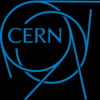European Organization for Nuclear Research (CERN)
Research and Development • Member since 2018

CERN, the European Organization for Nuclear Research, is the world’s leading laboratory for particle physics. It provides a unique range of particle accelerator facilities enabling research at the forefront of human knowledge. Its business is fundamental physics, finding out what the universe is made of and how it works. Founded in 1954, CERN now has 22 Member States as well as other nations from around the globe contributing to and participating in its research programmes. The Laboratory has become a prime example of international collaboration, uniting people from all over the world to push the frontiers of science and technology for the benefit of all.
Within CERN, the Knowledge Transfer Group aims to engage with experts in science, technology and industry in order to create opportunities for the transfer of CERN’s technology and know-how. The ultimate goal is to accelerate innovation and maximise the global positive impact of CERN on society in several application fields.
Aerospace is a field in which CERN is playing a critical and increasingly recognised role from both the scientific and the technological point of view. This domain is considered as highly strategic by many of CERN’s institutional and industrial partners in the Member States and beyond. Both space missions and underground accelerator and detector infrastructures have to deal with extremely harsh environments, posing stringent technological requirements that often overlap. In addition, the exploration of the smallest and largest structures of the Universe requires instruments and data exploitation systems capable of the highest achievable performances. CERN’s technologies, facilities and know-how have concrete applications in space, and the KT Group is committed to exploring synergies and establishing partnerships with institutional, research and commercial organisations active in the aerospace sector.
-
Route de Meyrin 385
1217 Meyrin - Geneva
Switzerland - https://home.cern/
Participation
- GNF > Wednesday 3 October 2018: IAF GNF Public Stream > Space Spin-Ins from the Underground – CERN’s Aerospace Applications
